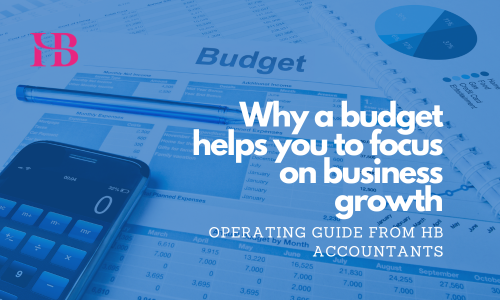An audit may be a legal requirement for your business but a well managed audit can also boost your business growth and ensure that it is operating in the best way possible.

Deep down you know that an audit is a positive thing, however, a significant portion of us only submit to an audit because we are compelled to do so. Employees are often cautious about what they tell the auditor because they do not know how the information will be used and what any potential consequences it may bring.
How an audit can help your business
Improve internal systems and controls – An audit of your business doesn’t just look at your finances. An auditor will take an independent view of your whole business including your systems and process. Their guidance could help you to improve how you work.
Identify weaknesses and risks – An audit looks at your market sector including opportunities and risks. It can flag weaknesses in how you operate and any potential risks to your future business. This may help you to reduce the risk factors such as over dependence on a particular client or concerns with contracts or suppliers.
Verify your financial position – An external auditor will verify your financial statements which gives credibility to what you say. This is useful for marketing, raising investment, giving shareholders confidence in your business, or helping with a sale if you want to exit your business.
Discover fraud – Auditors are responsible for providing reasonable assurance that financial statements are accurate and any incorrect statements are identified. Incorrect statements may be caused by a genuine error or fraud.
How to help ensure a useful and smooth audit
Here are some actions you can take ahead of an audit to help it run smoothly – which in turn saves money, time and stress.
ACTION! PREPARE YOUR TEAM FOR THE AUDIT
Take the time to explain to the whole team why you are being audited and how you will use any outputs to improve the business. Audits are sometimes kept within the confines of the accounting team – by sharing information with everyone, you can create a transparent process that keeps everyone involved and updated.
Brief your team on what to expect during the audit including what questions they could expect to be asked. This means there will be better engagement between your organisation and the auditor.
ACTION! SCHEDULE THE AUDIT WHEN YOUR TEAM IS AVAILABLE
Your auditor may need to speak to key team members from across your business including in accounts, stores, distribution departments. Be aware of your busy periods at work, any regular deadlines, and when key staff members are on holiday and schedule your audit outside of these times.
ACTION! PREPARE THE INFORMATION NEEDED
Speak to your auditor in a pre-planning meeting or call ahead of the audit and find out exactly what information you will need to provide.
Create an audit file filled with all the documents that you need – and find any missing documents in advance!
Review the process from previous audits to see if you could improve how you share documents or answer questions to save time and effort.
You are likely to be asked to provide:
- copy trial balance
- schedules of fixed assets
- Accruals
- copies of invoices
- Purchase orders for items of significant value
- Trade creditors and debtors listings
- Bank statements including those immediately before and after the year end
- Profit and loss accounts
Consider giving ‘view’ access to the auditors on any online accounting systems. They can’t edit data but can quickly see what is needed without troubling the team. Some elements of the audit may be conducted virtually, saving time and money for both parties.
ACTION! PREPARE A ROOM FOR THE AUDITORS
If a room isn’t available, provide a desk with enough seats 😉 They will need access to power sockets too.
Could an audit support your business?
Reviewing audit findings proactively could, for example, reveal unexpected ways for your team to work more efficiently, new opportunities for business, and it may uncover fraud that is damaging your company and as importantly, your reputation. Even if you are not legally obligated to undertake an audit, it may help your business.
If you would like to learn more about the audit team at HB Accountants, discover how they can give you real confidence in the future of your business and how you can save money during an audit, then contact Karen karenr@hbaccountant.co.uk. We’re accountants for business and we are here to help you grow efficiently.
The information contained above is for general guidance purposes only. Whilst every effort has been made to ensure the contents are accurate, please note that each individual has different circumstances and it is essential that you seek appropriate professional advice before you act on any of the information contained herein. HB Accountants can accept no liability for any errors or omission or for any person acting on or refraining from acting on the information provided in the above
Read latest blogs below or click here
- HMRC Advisory Fuel Rates (AFRs) from 1st June 2025
 HMRC has published the latest Advisory Fuel Rates (AFRs) which apply from 1 June 2025. AFRs are the official rates used when reimbursing employees for business mileage in company cars. They’re reviewed every quarter (February, May, August and November) and adjusted in line with fuel prices.
HMRC has published the latest Advisory Fuel Rates (AFRs) which apply from 1 June 2025. AFRs are the official rates used when reimbursing employees for business mileage in company cars. They’re reviewed every quarter (February, May, August and November) and adjusted in line with fuel prices. - How an audit can help your business (and actions you can take to make it go smoothly too!)
 An audit may be a legal requirement for your business but a well managed audit can also boost your business growth and ensure that it is operating in the best way possible. Deep down you know that an audit is a positive thing, however, a significant portion of us only submit to an audit because … Continue reading
An audit may be a legal requirement for your business but a well managed audit can also boost your business growth and ensure that it is operating in the best way possible. Deep down you know that an audit is a positive thing, however, a significant portion of us only submit to an audit because … Continue reading - Why a budget helps you to focus on business growth
 Are you looking for clarity over the future direction of your business? Do you want to know the actions you should take in order to grow your business? Then consider taking time to create a budget for your business.
Are you looking for clarity over the future direction of your business? Do you want to know the actions you should take in order to grow your business? Then consider taking time to create a budget for your business. - How a SME Owner Can Create More Time
 SME owners and managers – are you part of the one in five small and medium-size enterprise managers that work on average an additional 3 hours a day on a regular basis? Or one of the 33% that claim that there just aren’t enough minutes in a day to get everything completed? (The Independent study … Continue reading
SME owners and managers – are you part of the one in five small and medium-size enterprise managers that work on average an additional 3 hours a day on a regular basis? Or one of the 33% that claim that there just aren’t enough minutes in a day to get everything completed? (The Independent study … Continue reading - A New Academic Year for our Student in Zambia
 As the new academic year unfolds in Zambia, we are delighted to share an update about our sponsored student, Getrude. Currently in her second year at Chalimbana University, Gertrude is studying Business Administration in Accounting and Finance.
As the new academic year unfolds in Zambia, we are delighted to share an update about our sponsored student, Getrude. Currently in her second year at Chalimbana University, Gertrude is studying Business Administration in Accounting and Finance. - Benefits in Kind via the Payroll
 From April 2027, Benefits in Kind (BIK) payments will need to be paid and recorded via payroll each month. Businesses need to prepare for this change.
From April 2027, Benefits in Kind (BIK) payments will need to be paid and recorded via payroll each month. Businesses need to prepare for this change.

